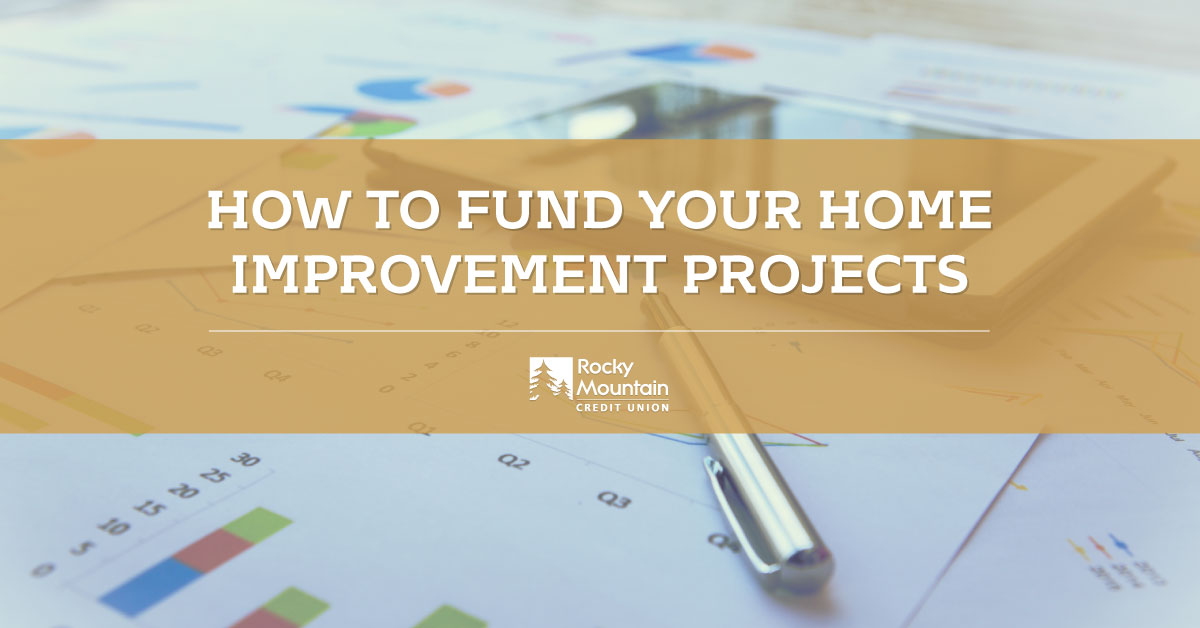Refinancing Your Mortgage
An option for large home improvement projects is to refinance your home and add the cost to your current mortgage. While the funds are being used to make improvements and hopefully add value to the home, it is important to be sure you will still have enough equity in your home. If your total note ends up being more than the value of your home once the improvements are made, you will find yourself upside down on your loan.
If you use this method to provide funding for your home improvement projects you will need to have a very good idea of the total cost, so you will know how much money to take out. Additionally, you will need to add the cost of closing to your improvement budget.
Using Your Credit Cards
An option that many people use to fund home projects is credit cards. Hardware and home improvement stores will usually advertise zero rate financing on purchase amounts that are above a certain total. If this is the route you choose, it is important to pay these balances off before the promotional rate expires. Otherwise, the company will charge you interest on the entire purchase from the origination date. If you utilize other cards to fund your improvement projects you will want to account for the interest you will have to pay in your budget.
Obtaining a Personal Loan
Personal loans can typically be obtained for lower interest rates, but require excellent credit as there is no collateral involved. These types of loans often have shorter repayment schedules and therefore can have larger monthly payments. These shorter repayment schedules will cost you significantly less in overall interest than a home refinance, but similar to the home refinance option above, you will need to know how much money the project will cost before obtaining the loan.
Open a Home Equity Line of Credit
A HELOC, is a loan that allows you to use the equity in your home as the loan's collateral. A home equity line of credit can be in amounts up to 80% of the value of your home, and you can draw on the account as you need it. A HELOC is an excellent way to fund large home improvement projects as they not only will get you the resources that you need but will also give you the flexibility of when to borrow. All too often home improvement projects don't go as the plan or may end up incurring additional costs. With a home equity line of credit, you will simply need to withdraw from it to pay the expenses and will only be paying interest on money that you are using.
Home equity lines of credit are broken down into two primary periods during the loan's life.
- Draw Period - Draw periods for home improvement loans are typically ten years, and monthly payments mainly include interest with a small amount of principal being paid.
- Repayment Period - The repayment period for home equity loans is traditionally 15 years, and at this time the monthly payment will increase as you will be paying back larger chunks of the principal.
During both the draw and repayment period, interest paid can be used as a write off on your income taxes up to $100,000.
Qualifying for a home equity loan is a similar process to a traditional mortgage, as lenders will look at your credit score, income, payment history, and the value of your home.
HELOC Interest Rates
Home equity line of credit interest rates are variable and will be calculated by both an index and a margin. While the margin is constant through the duration of the loan, the index will fluctuate based on current rates. Some lenders will offer the opportunity to convert lines of credit to a fixed rate after a duration of time.
If you are planning on any significant home improvement projects or are just looking for some flexibility to make updates to your home, contact the professionals at Rocky Mountain Credit Union today to find out if a home equity line of credit is the best option for you.
If you enjoyed this blog, take a look at some of our other related articles:

